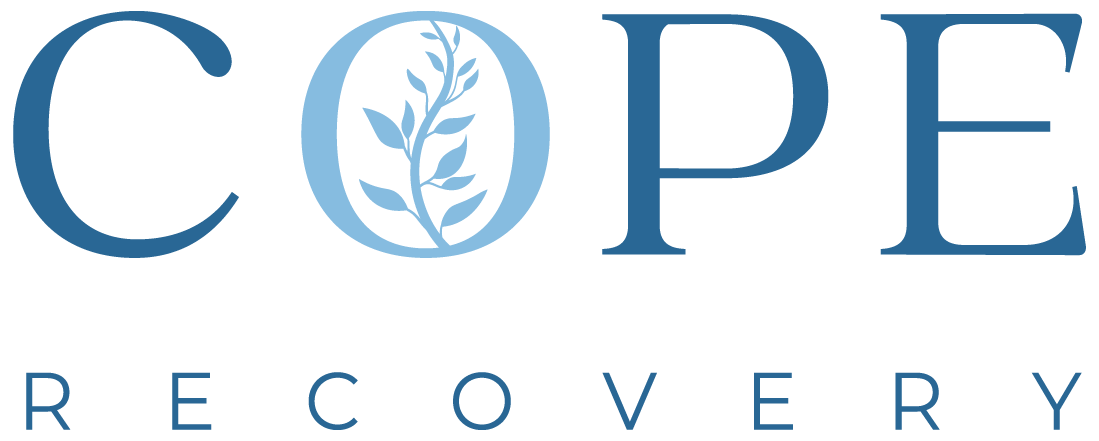FACT:
“Early identification and treatment of co-occurring disorders can significantly improve recovery outcomes"
Introduction to Co-Occurring Disorders
Co-occurring disorders, often referred to as dual diagnoses, describe the simultaneous presence of a mental health disorder and a substance use disorder in the same individual. It’s very common for substance use disorders to occur alongside other mental health conditions. According to the Substance Abuse and Mental Health Services Administration (SAMHSA), approximately 8.2 million adults in the United States are affected by co-occurring disorders.
Effective treatment addresses both the substance use disorder and the co-occurring mental health condition. For individuals facing both mental illness and substance dependence, integrated mental health and addiction treatment is essential. Rather than addressing each condition in isolation, this approach treats both concurrently through a coordinated and comprehensive plan, significantly increasing the chances of lasting recovery.
Essentially, co-occurring disorders highlight the complex interplay between substance use and mental health. Recognizing and addressing both aspects is essential for providing effective and compassionate care. In order to achieve true and sustained recovery, individuals with co-occurring disorders must receive integrated treatment that addresses both conditions simultaneously. Choosing a specialized dual diagnosis treatment center ensures you will receive integrated care that addresses both mental health and substance use disorders.
Signs and Symptoms of Co-Occurring Disorders
Recognizing the signs and symptoms of co-occurring disorders is a crucial first step toward effective treatment. Some of the most common signs include:
- Extreme mood changes (e.g., mania, irritability, depression)
- Persistent anxiety or panic attacks
- Symptoms of depression, such as hopelessness or loss of interest
- Psychotic episodes (hallucinations or delusions)
- Increased tolerance to drugs or alcohol
- Withdrawal symptoms when not using
- Using substances to cope with mental health symptoms
- Continued substance use despite negative consequences
When these conditions occur together, individuals may engage in risky behaviors, such as self-medicating with drugs or alcohol to manage mental health symptoms. This can create a dangerous cycle where both the mental health disorder and the substance use disorder continue to worsen over time.
By recognizing these warning signs early, individuals and their loved ones can take proactive steps to seek professional help at a co-occurring disorder rehab and begin the journey toward lasting recovery.
Here are some of the most frequently seen co-occurring combinations:
Some of the most frequently seen co-occurring combinations include the following:
Depression and Substance Use Disorders
People struggling with depression may turn to drugs or alcohol as a way to self-medicate, seeking temporary relief from feelings of sadness, hopelessness, and low energy. Conversely, substance use can also trigger or worsen depressive symptoms. At a dual diagnosis treatment center, both depression and substance use are treated simultaneously to break this harmful cycle and promote long-term recovery.
Anxiety Disorders and Substance Use Disorders
Similar to depression, individuals with anxiety disorders (such as generalized anxiety disorder, panic disorder, or social anxiety disorder) might use substances to alleviate feelings of fear, worry, and tension. Again, substance use can also exacerbate anxiety symptoms. A dual diagnosis rehab program provides integrated treatment for these co-occurring disorders, helping individuals develop healthier coping mechanisms.
Post-Traumatic Stress Disorder (PTSD) and Substance Use Disorders
PTSD is a mental health disorder caused by witnessing a traumatic event, and it causes changes to your brain chemistry in much the same way as substance abuse and addiction do. Following a traumatic experience, the brain produces fewer endorphins, one of the chemicals that help people feel happy. People with PTSD may turn to mood-enhancing substances, which increase endorphin levels. Over time, the PTSD sufferers may come to rely on these substances to relieve their feelings of depression, anxiety, disconnection, and/or irritability. Dual diagnosis treatment centers are equipped to address both PTSD and addiction simultaneously, helping individuals manage triggers without relying on drugs or alcohol.
Bipolar Disorder and Substance Use Disorders
Individuals with bipolar disorder, characterized by extreme mood swings, may use substances to manage their manic or depressive episodes. However, substance use can destabilize their mood and worsen the disorder. Dual diagnosis treatment provides a structured and supportive setting for stabilizing both conditions through medication management, therapy, and behavioral support.
Personality Disorders and Substance Use Disorders
Most personality disorders, but especially Borderline personality disorder and Antisocial personality disorder, can cause behaviors that increase the likelihood that substance abuse will be used as a means of alleviating the associated debilitating symptoms and experiences. A comprehensive dual diagnosis rehab program is essential for treating these complex co-occurring disorders, as it addresses both the emotional dysregulation and the addiction together.
Understanding Integrated Mental Health and Addiction Treatment
Behavioral health encompasses mental health conditions, substance use disorders, and co-occurring disorders. When these conditions intersect, the complexity of care increases dramatically.
Integrated mental health and addiction treatment models bring together behavioral therapy, medication management, and recovery support services. This holistic approach aligns with guidance from the National Institute on Drug Abuse (NIDA), which emphasizes that treating both mental health and substance use disorders together produces better outcomes than treating them separately.
Evidence-based therapies like dialectical behavior therapy (DBT) and cognitive-behavioral therapy (CBT) have proven effective in treating co-occurring disorders. The treatment process may also involve residential treatment, medication management, and intensive case management to provide comprehensive support.
“You are not alone. We are all in this together."
What To Expect From A Dual Diagnosis Treatment Center
A dual diagnosis treatment center specializes in treating individuals who face both a substance use disorder and a mental health condition at the same time. These co-occurring disorders often interact in complex ways, making it essential to address both simultaneously through integrated care. At a center like Cope Recovery, treatment begins with a thorough assessment and continues with a customized plan that combines therapy, medical support, and holistic care, all designed to promote long-term stability and healing.
How Co-Occurring Disorders Are Identified
Identifying co-occurring disorders is one of the most critical first steps in dual diagnosis treatment. During the intake process at a dual diagnosis treatment center, like Cope Recovery, a licensed counselor or clinician conducts a comprehensive assessment that explores all aspects of a person’s well-being, including physical health, substance use history, psychiatric symptoms, and emotional challenges.
This evaluation often includes a detailed clinical interview, standardized screening tools, medical tests, and a review of any past diagnoses or treatments. The goal is to get a full picture of your needs, rather than treating addiction in isolation. Many symptoms of substance use can mimic mental health disorders (and vice versa), so obtaining an accurate mental health diagnosis is essential.
How Co-Occurring Disorders Are Treated
Treating co-occurring disorders requires a comprehensive, integrated approach that addresses both the mental health condition and the substance use disorder at the same time. At a dual diagnosis treatment center like Cope Recovery, the focus is on delivering care that recognizes the intricate relationship between these conditions.
Personalized Dual Diagnosis Treatment Plans
The foundation of effective dual diagnosis treatment lies in a personalized care plan.
Each client undergoes a thorough clinical assessment to determine the specific mental health diagnoses involved, whether it be depression, anxiety, PTSD, or a personality disorder, and how they interact with patterns of substance use.
From there, an individualized treatment plan is created, combining evidence-based therapies, medication management (when necessary), and holistic approaches designed to heal the whole person.
Evidence-Based Therapies and Support
A quality dual diagnosis rehab program will typically include cognitive behavioral therapy (CBT), dialectical behavior therapy (DBT), trauma-informed care, and group therapy, all within a structured environment.
Clients receive both psychiatric support and addiction counseling, often from a multidisciplinary team that includes psychiatrists, therapists, medical staff, and recovery specialists.
Coordinated Care for Lasting Recovery
This integrated model ensures that symptoms of both conditions are treated in tandem, reducing the risk of one disorder triggering the other. Through this kind of targeted, coordinated care at a dual diagnosis treatment center, individuals struggling with co-occurring disorders can finally achieve clarity, emotional stability, and meaningful progress toward recovery.
Why Specialized Co-Occurring Disorder Rehab Is Essential
Entering a co-occurring disorder rehab program is one of the most important steps a person can take when facing both a substance use disorder and a mental health condition. These overlapping challenges require a specialized, integrated approach that addresses both issues at the same time.
Without targeted care from professionals trained in co-occurring disorders, individuals are far more likely to experience relapse, misdiagnosis, or incomplete healing.
When treating a person with co-occurring disorders, it is important that your professional team understands the following:
Your effective treatment is dependent upon an accurate diagnosis that recognizes that you have been challenged with two independent conditions: Co-occurring disorders aren’t just one problem causing another. They are two distinct conditions that can interact and influence each other.
These multiple disorders can cause complex interactions: The symptoms of each disorder can worsen the other. These conditions can interact with each other, making both substance use and mental health symptoms more severe. For example, someone with depression might use alcohol to self-medicate, which can then deepen their depression and increase their risk of alcohol addiction.
That there are a multitude of varied combinations. Co-occurring disorders can involve any combination of SUDs (like alcohol, opioids, or stimulants) and mental health disorders (like anxiety, depression, bipolar disorder, or PTSD).
An integrated treatment approach that combines substance abuse counseling, mental health therapy, and, when necessary, medication is crucial. Treating only one condition is often ineffective. When mental health and substance use disorders co-occur, each needs to be addressed simultaneously for successful recovery. It is also essential that treatment takes place in a safe and supportive environment, which fosters trust and emotional safety, and reduces judgment, which are key factors for effective recovery.
People with co-occurring disorders are at increased risk for suicide, homelessness, incarceration, medical complications, and relapse. Federal law requires that insurance coverage for behavioral health conditions is comparable to coverage for physical health conditions, ensuring parity and access to necessary treatment.
Begin Your Journey To Recovery At Cope Recovery
One of the many things that distinguishes Cope Recovery from other detox and rehab centers is that we understand that our clients’ substance use may only be one piece of a larger picture. We understand that long-term recovery requires a holistic plan that addresses the full person. Our dual diagnosis treatment center offers personalized treatment programs designed to meet your needs, whether you struggle with trauma, anxiety, depression, or other mental health concerns.
At our co-occurring disorder rehab, you will receive consistent medical and emotional support, along with proven therapeutic techniques and relapse prevention strategies. Our team works to ensure you feel safe, understood, and equipped to reclaim your life.
If you or a loved one is struggling, do not wait. Contact Cope Recovery today for a free, confidential consultation. We are here to answer any questions you may have and help you make an informed decision regarding the treatment program that is the best fit for you. Start your journey to recovery today.
Our experienced staff is available 24/7 at 866-965-2852 to help you begin your journey through integrated mental health and addiction treatment.
Learn More About Our Treatment
Meet the Team
Our professional and multi-disciplinary team delivers an unparalleled, empathetic, standard of care that distinguishes the program at Cope Recovery from other substance abuse/addiction treatment centers. From initial contact and assessments, through detox, daily treatment, and discharge, we are committed to supporting you during each and every step of your recovery process.


